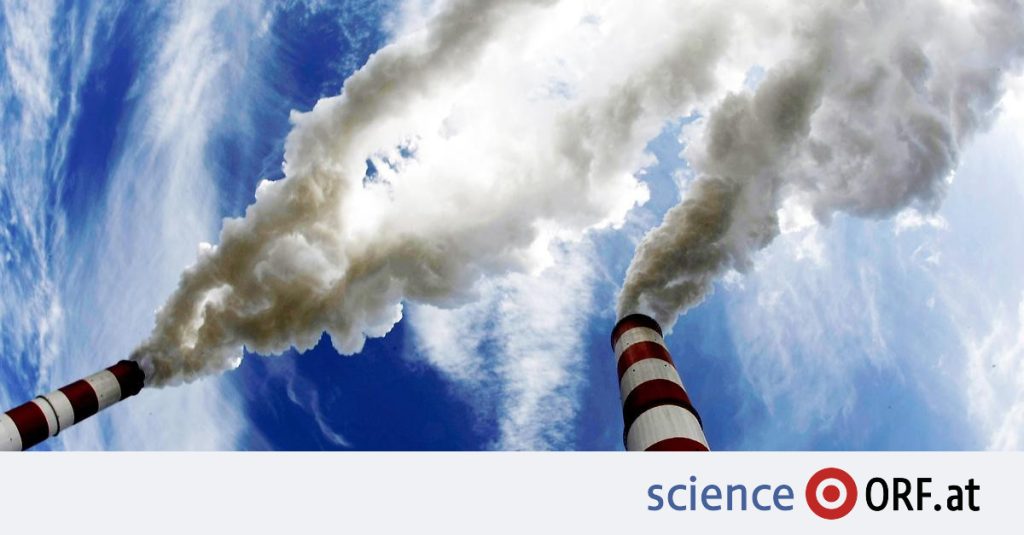In order to limit global warming to 1.5 degrees, the peak must be reached by 2025 at the latest, and then emissions must decline, researchers comment in a dated date Climate Change Center Austria (CCCA) organized a webinar for the latest report on Intergovernmental panel on climate change (Intergovernmental panel on climate change). He said global emissions have increased by 12 percent since the previous IPCC report (2010), and by about 50 percent since the 1990s. Kiwan Riahi From the International Institute for Applied Systems Analysis in Laxenburg, near Vienna.
More than 3,000 emissions scenarios for the current report showed that “rapid and drastic emissions reductions are necessary across all sectors”. For a temperature rise of less than 2 degrees Celsius, greenhouse gas emissions must fall by 27 percent by 2030, and by 40 percent with a maximum of 1.5 degrees.
“The cost of reducing emissions is relatively small, certainly lower than the cost of causing the warming effects,” Riahi said. It amounts to 2.6 to 4.2 percent of global GDP by 2050 in the 1.5 degree scenario, and 1.3 to 2.7 percent in the two degree scenario. According to forecasts, GDP will increase by up to 100 percent during this time.
Example of a vegetarian diet
According to the IPCC report, climate protection corresponds to “well-being for all,” she said. Felix Kreutzig From the Mercator Institute for Research on the Global Commons and Climate Change (MCC) in Berlin: “Services essential to a good life are easily possible with less use of resources.” Climate protection measures can often dramatically increase people’s well-being.
Shifting to more plant-based feeding will save emissions from pig farming and industrial livestock on the one hand, and improve consumer health on the other. However, one should not wait for “such changes in behavior to come on their own,” which would require economic and political change. “Right now, people often have to swim upstream in order to behave in a climate-friendly manner.”
In front of Austria some catch up
The experts also identified a “very positive change”. For example, technological advances in solar and wind energy have made renewable energy cheaper than fossil energy in some countries. And batteries for electric cars have also recently seen a huge drop in cost. “Electricity systems in some countries are already largely dependent on renewable electricity,” Riahi said. Austria is one of those, mainly due to the high percentage of energy from hydropower.
However, according to the report, Austria “is not among the 24 countries with sustainable emissions reductions,” according to Cree. It can get expensive. “Everything that was not achieved by 2030 must be compensated later with more expensive and stricter measures,” says Riahi. The less committed to climate protection in the coming years, the more costly it will be to future generations.

“Total coffee aficionado. Travel buff. Music ninja. Bacon nerd. Beeraholic.”







More Stories
Researchers detect extremely high-energy gamma rays
Anxiety disorders in old age increase the risk of dementia
Researchers are particularly fascinated by these exoplanets.